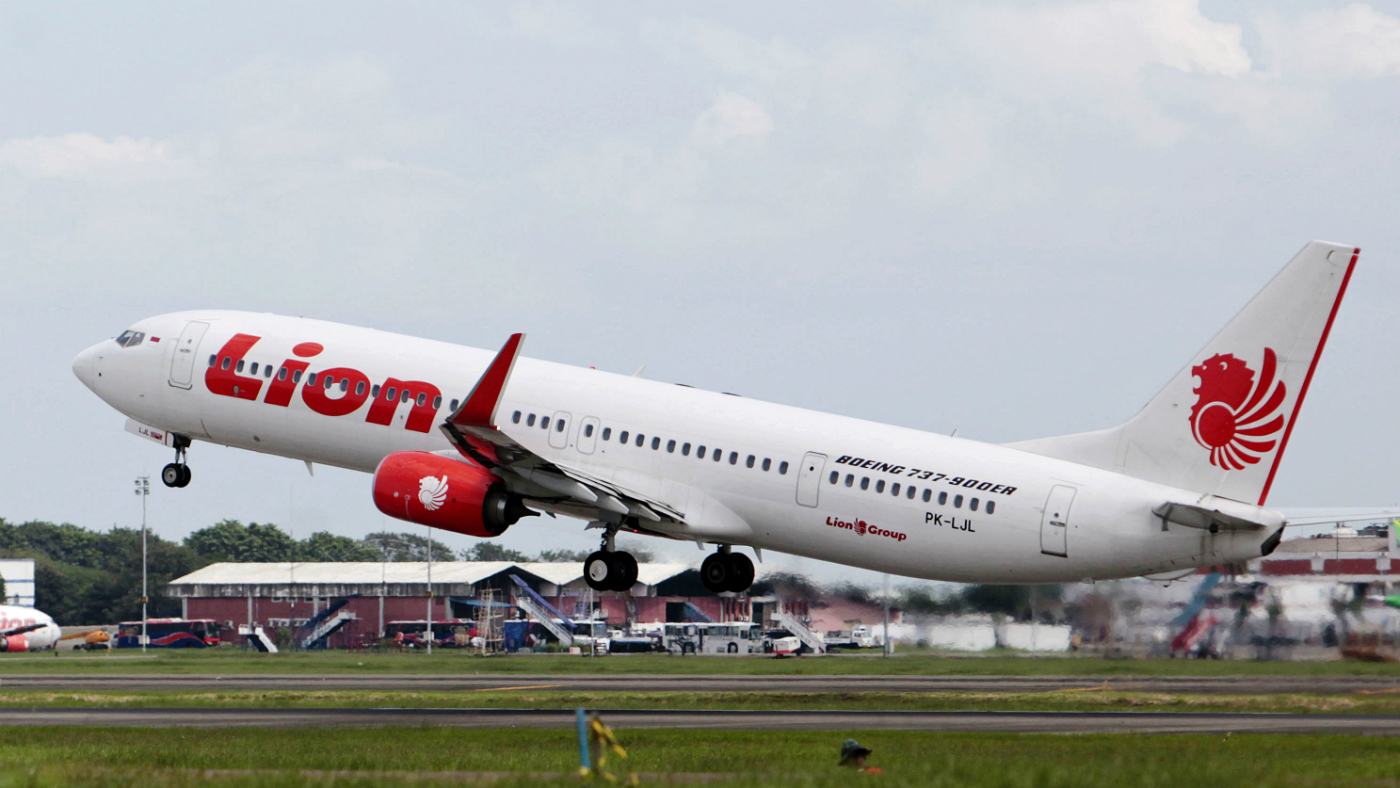Boeing 737 Max 8: ‘critical’ safety features sold as optional extras
Planes in Lion Air and Ethiopian Airlines crashes both missing safety upgrades

A free daily email with the biggest news stories of the day – and the best features from TheWeek.com
You are now subscribed
Your newsletter sign-up was successful
The Boeing 737 Max passenger planes involved in fatal crashes in Indonesia and Ethiopia both lacked the same safety features sold as optional extras by the aircraft manufacturer, according to reports.
Ethiopian Airlines Flight 302 crashed shortly after take-off from Addis Ababa on 10 March, killing all 157 people on board.
The disaster came after another 737 Max 8 aircraft, operated by Indonesian budget carrier Lion Air, crashed in October, killing 189 passengers and crew.
The Week
Escape your echo chamber. Get the facts behind the news, plus analysis from multiple perspectives.

Sign up for The Week's Free Newsletters
From our morning news briefing to a weekly Good News Newsletter, get the best of The Week delivered directly to your inbox.
From our morning news briefing to a weekly Good News Newsletter, get the best of The Week delivered directly to your inbox.
The New York Times reports that both planes were operating without two additional safety features not included as standard that might have provided the aircrafts’ pilots with crucial early warning alerts.
Initial investigations into the disasters have identified a potential fault with flight-control software that automatically corrects the angle of the plane’s nose if it is judged to be at risk of stalling.
The software takes its readings from the plane’s angle-of-attack sensors. “One of the optional upgrades, the angle-of-attack indicator, displays the readings of the two sensors. The other, called a disagree light, is activated if those sensors are at odds with one another,” says the US newspaper.
The features “would have alerted the pilots to problems with their angle-of-attack sensors - the input suspected of causing the Maneuvering Characteristics Augmentation System (MCAS) software to put both aircraft into a fatal dive”, says tech news site Ars Technica.
A free daily email with the biggest news stories of the day – and the best features from TheWeek.com
“They’re critical, and cost almost nothing for the airlines to install,” Bjorn Fehrm, an analyst at aviation consultancy Leeham, told The New York Times. “Boeing charges for them because it can. But they’re vital for safety.”
Investigations into both disasters are ongoing, and no formal link has been made between the crashes and the missing features.
However, a source told the newspaper that Boeing is to make the angle-of-attack disagree light a standard feature “as part of a fix to get the planes in the air again”. The indicator will remain an optional extra.
The company has already unveiled plans to update its MCAS software to allay safety fears.
Boeing has grounded all 371 planes in the 737 Max fleet, after several countries, including the UK, barred the model from their airspace until more is known about the cause of the recent accidents.
Meanwhile, Indonesian airline Garuda is reported to have cancelled an order for 49 of the jets, a deal worth around £3.75bn.
The 737 Max is Boeing’s best-selling model, so quelling safety fears is an urgent priority for the aerospace company, which “has orders for nearly 5,000 of the aircraft, enough to keep production lines operating for years to come”, CNN Business reports.
-
 Switzerland could vote to cap its population
Switzerland could vote to cap its populationUnder the Radar Swiss People’s Party proposes referendum on radical anti-immigration measure to limit residents to 10 million
-
 Political cartoons for February 15
Political cartoons for February 15Cartoons Sunday's political cartoons include political ventriloquism, Europe in the middle, and more
-
 The broken water companies failing England and Wales
The broken water companies failing England and WalesExplainer With rising bills, deteriorating river health and a lack of investment, regulators face an uphill battle to stabilise the industry
-
 Epstein files topple law CEO, roil UK government
Epstein files topple law CEO, roil UK governmentSpeed Read Peter Mandelson, Britain’s former ambassador to the US, is caught up in the scandal
-
 Iran and US prepare to meet after skirmishes
Iran and US prepare to meet after skirmishesSpeed Read The incident comes amid heightened tensions in the Middle East
-
 Israel retrieves final hostage’s body from Gaza
Israel retrieves final hostage’s body from GazaSpeed Read The 24-year-old police officer was killed during the initial Hamas attack
-
 China’s Xi targets top general in growing purge
China’s Xi targets top general in growing purgeSpeed Read Zhang Youxia is being investigated over ‘grave violations’ of the law
-
 Panama and Canada are negotiating over a crucial copper mine
Panama and Canada are negotiating over a crucial copper mineIn the Spotlight Panama is set to make a final decision on the mine this summer
-
 Why Greenland’s natural resources are nearly impossible to mine
Why Greenland’s natural resources are nearly impossible to mineThe Explainer The country’s natural landscape makes the task extremely difficult
-
 Iran cuts internet as protests escalate
Iran cuts internet as protests escalateSpeed Reada Government buildings across the country have been set on fire
-
 US nabs ‘shadow’ tanker claimed by Russia
US nabs ‘shadow’ tanker claimed by RussiaSpeed Read The ship was one of two vessels seized by the US military